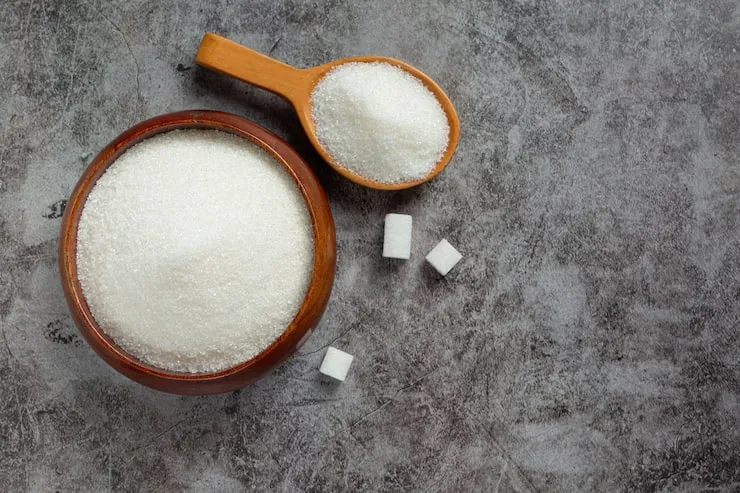The project is run by the Punjab Cultural Project (PCP), in collaboration with ISB Mohali and NICEorg. They are assisting small, culture-driven businesses to expand, earn more, and access larger markets.
Punjab is renowned for its vibrant phulkari, hand-stitched juttis, folk songs, delicious cuisine, and celebratory festivals. Yet, most artisans and small industries are finding it difficult to survive. Usually, they do not have access to funds, new technology, or contemporary marketing.
A Launch Full of Punjabi Energy
The launch ceremony resembled a mini Punjabi mela. There were dhol beats, street food stalls, and colorful-clad people. Guests had makki di roti, gur, lassi, and even homemade pickles.

Events of folk music and dance were the centre of attraction. Over 200 entrepreneurs, artists, and community leaders gathered. They all are working towards a single cause-to develop their businesses while proudly taking Punjab's culture forward.
Read Also: City of Joy, Village of Peace: Discover the Dual Life of Bengal
Who Can Apply to the Program?
The Culture Catalyst accepts small businesses from Punjab and surrounding areas. The program seeks individuals who:
- Produce or offer products or services based on Punjabi culture
- Operate businesses such as handmade crafts, local cuisine, fashion, home decor, or tourism
- Have had a business for a minimum of one year
- Desire to expand but require assistance with branding, marketing, and finance
- It's ideal for phulkari weavers, jutti makers, village homestay owners, home chefs, and folk musicians alike.
What Assistance Will They Receive?
The shortlisted brands will receive six months of comprehensive assistance. The initiative provides:
- Training for businesses through workshops and classes
- Guidance by seasoned mentors
- Seed money of 1 lakh
- Marketing, packaging, and storytelling support
- An opportunity to pitch their business to investors
- Growth assistance to scale up their business in India and internationally
- All the training will be done online, with three face-to-face meet-ups at ISB Mohali.
Why Now?
Punjab's culture is enjoyed globally whether its music or food. But unfortunately, the original artists and small enterprises don't always get the rewards. And the aim of the program is to change this convention.
Related Article: Navratri Culture in Action: How Gujarat Celebrates with Garba, Dandiya and Community Spirit
Punjabis love Punjabi music, attire, and cuisine. But the artisans and small shopkeepers don't always get a lot of money. We hope to rectify this by making what they do into successful businesses," added Chitra Iyer, another co-founder of PCP.
The spirit of Punjab lies in its villages, music, festivals, and fairs. This initiative urges companies to maintain those roots strong. Entrepreneurs will be led to:
- Apply Punjabi patterns, language, and heritage in their products
- Identify eco-friendly, handmade, and true products
- Relate the genuine stories behind their products
- Generate employment opportunities in nearby villages and small towns
For instance, a jutti craftsman can market their shoes as handmade with a family background. A domestic chef can market pickles or laddoos with village stories. A homestay operator can lure tourists by providing true Punjabi food and folk experiences.
Voices of Hope
A young businesswoman from Patiala, Nimrat, wants to be a part of it. She designs hand-embroidered dupattas with phulkari motifs. I wish the world beyond Punjab knows our work and understands our culture. But I am unable to market it. This program can assist, she said.

In the same way, Balbir of Jalandhar has a small pickle business. "We use my grandmother's recipes. People love the taste, but I need better packaging and a wider market. Maybe this can be my chance," he smiled.
The Culture Catalyst is not merely about profiting. It's about cultivating pride, maintaining heritage, and creating employment. It's about proclaiming to the world that Punjab is more than music and cuisine it's also about skilled hands, hard labor, and ingenuity.
The organizers hope this model will be able to create actual change, particularly in rural regions. With proper business acumen and funding, more individuals can remain in Punjab, earn a good income, and transfer their cultural talent to the next generation.
Looking Ahead
The initial batch of chosen businesses will be announced in July. They will begin their training process shortly afterwards. If this program succeeds, it can be replicated in other projects all over India. The other states can also make their culture into livelihoods and pride.
Pride as a Product and Culture as a Business
The lifestyle of Punjab is colorful full of colors, music, flavors, and love for the community. With the Culture Catalyst now, that lifestyle can be converted into successful brands by small businesses.
The approach of the initiative is broad. It is not just about selling stuff. It is about selling stories, maintaining traditions, and introducing the world to the authentic, proud, and innovative face of Punjab.
It is a concrete step to make artisans, entrepreneurs, and dreamers shine . Punjab's culture has always been rich. Now it can also become anyone’s business. It is a significant step not just to preserve but also to promote punjabi culture.
FAQ's- Promoting Punjabi Culture
How to speak to Punjabi culture?
The conventional dresses of Punjab are exceptionally colourful, interesting and dynamic. Ladies wear Salwar kameez (Salwar is the foot wear and kameez upper). These dress are unpredictably outlined and delightfully weaved at homes in multi colours. Men wear a Turban with extraordinary pride.
What is the personality of Punjabi culture?
Traditionally, the Punjabi personality is basically etymological, geological and social. Its personality is autonomous of verifiable root or religion and alludes to those who dwell in the Punjab locale or relate with its populace and those who consider the Punjabi dialect their mother tongue.
How do I appear my culture?
Sharing your culture doesn't cruel giving absent unmistakable things that remind you of your local nation. Your social conventions can be shared through narrating, music, melody, move, or craftsmanship. You can too offer assistance bridge the hole by sharing perspectives of your social influences.
What do Punjabis celebrate?
The Punjabi Sikhs and Hindus regularly do not watch these, and instep watch notable celebrations such as Lohri, Basant and Vaisakhi as regular celebrations. The Sikh and Hindu celebrations are territorial official occasions in India, as are major Islamic festivals.
What is the fundamental culture of Punjab?
Traditional Punjabi move, Kikkli. Punjabi moves are performed either by men or by ladies. The moves run from solo to gather moves and too in some cases moves are done along with conventional melodic rebellious. Bhangra is one of the most celebrated moves starting in the Punjab by ranchers amid the gathering season.
What is the best thing approximately Punjabis?
Punjabis are known for their irresistible chuckling and a unmistakable sense of humor. The locale has a wealthy convention of society humor, with comedic narrating, perky exchange, and mocking verse that brings grins to faces.
What are the values of Punjabi culture?
Religion and otherworldly existence are central to Punjabi culture, with the locale being the origin of Sikhism. The lessons of Master Nanak and the consequent Sikh Masters emphasize the values of uniformity, equity, and community benefit.













